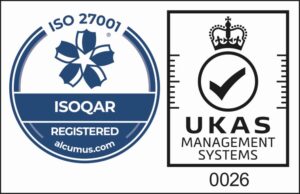The role of IT in remote work: challenges and opportunities
Remote work has become a prominent trend in the modern workforce, with technological advancements enabling employees to work from anywhere, anytime. Information Technology (IT) plays a critical role in facilitating remote work by providing the necessary infrastructure, tools, and support for seamless collaboration and productivity. However, remote work also presents unique challenges that IT teams must address. Let’s delve into the role of IT in remote work, the challenges it brings, and the opportunities it presents:
Infrastructure and Connectivity
IT teams are responsible for ensuring a robust and reliable technology infrastructure that supports remote work. This includes secure remote access to company networks, virtual private networks (VPNs), and reliable internet connectivity. IT professionals must optimize network bandwidth, monitor performance, and address connectivity issues to enable smooth remote collaboration.
Collaboration and Communication Tools
IT teams facilitate effective communication and collaboration among remote teams through the implementation and management of collaboration tools. This includes video conferencing platforms, instant messaging applications, project management software, and cloud-based document sharing platforms. IT professionals ensure these tools are accessible, secure, and integrated, enabling seamless communication and collaboration regardless of location.
Security and Data Protection
Remote work introduces security risks and potential data breaches. IT teams play a crucial role in implementing robust security measures, such as multi-factor authentication, data encryption, and secure file sharing protocols. They educate employees on best practices for maintaining data security and provide ongoing training and support to mitigate the risk of cyber threats.
Remote Support and Troubleshooting
IT teams provide remote technical support to employees, troubleshooting issues with hardware, software, connectivity, and other IT-related problems. They employ remote support tools, conduct virtual training sessions, and offer self-service resources to empower employees to resolve common technical issues independently. IT professionals ensure that remote employees have the necessary support to maintain productivity and resolve IT challenges promptly.
Endpoint Device Management
Managing a variety of endpoint devices used by remote workers can be complex. IT teams are responsible for endpoint device management, including device provisioning, security patching, software updates, and policy enforcement. They leverage mobile device management (MDM) solutions and implement remote device wipe capabilities to secure and manage devices used by remote employees.
Employee Productivity Monitoring
IT teams may implement productivity monitoring tools to track employee activities and measure performance. These tools enable IT professionals to assess remote work efficiency, identify potential bottlenecks, and optimize workflows. However, it’s essential to balance productivity monitoring with employee privacy and trust, ensuring transparent communication and clear expectations.
Training and Skill Development
IT teams provide training and resources to enhance remote workers’ technical skills and digital literacy. This includes educating employees on using collaboration tools effectively, cybersecurity best practices, remote troubleshooting techniques, and leveraging technology for enhanced productivity. IT professionals support ongoing skill development to empower remote workers and optimize their use of IT resources.
Scalability and Flexibility
Remote work offers scalability and flexibility for businesses to adapt to changing demands and optimize resource allocation. IT teams enable businesses to scale IT infrastructure and services based on remote workforce needs. They leverage cloud-based solutions, virtualization, and automation to quickly provision resources and adjust capacity to support remote work requirements.
Cost Optimization
Remote work presents cost optimization opportunities by reducing physical office space requirements and associated expenses. IT teams contribute to cost optimization efforts by implementing cloud-based services, virtual desktop infrastructure (VDI), and software-as-a-service (SaaS) solutions. They assess IT spending, optimize licensing models, and explore cost-effective technologies to achieve operational efficiency.
Innovation and Future-Proofing
IT teams play a pivotal role in driving innovation in remote work environments. They explore emerging technologies, such as artificial intelligence (AI), machine learning (ML), and virtual reality (VR), to enhance collaboration, automate workflows, and improve remote work experiences. IT professionals future-proof IT strategies, anticipating and adapting to evolving remote work trends and requirements.
In conclusion, the role of IT in remote work is instrumental in overcoming challenges and leveraging opportunities. IT teams empower businesses to embrace remote work by providing robust infrastructure, secure communication channels, efficient support, and innovative technologies. By addressing the unique challenges of remote work and optimizing IT support, organizations can unlock the full potential of remote work and empower their remote workforce for success.




